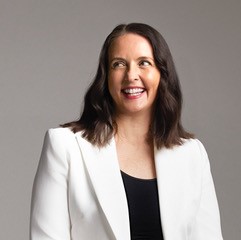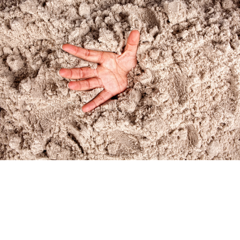
In recognition of Mental Health Awareness Week and the ongoing importance of wellbeing in the profession, LawPoints checks in with executive coach Madeleine Shaw. The Australian-based coach and former lawyer recently presented her webinar, 'Out of the Quicksand, 'in association with the New Zealand Law Society Auckland branch,' which was exceptionally well received nationally.

It is well-accepted that burnout and wellbeing are challenges of high-performing industries such as the legal profession. Madeleine says, "Now" is always the right time to put your hand up from the quicksand and call it. There is an innate fear of sharing and perceiving asking for help as a show of weakness. Madeleine says, "Asking for help is a show of strength and has great value for firms in retaining happy and healthy teams. We need staff to see the Managing Partner ask for help for this to be OK."

In Australia, the hand of the employers has been forced on worker wellbeing with the passing of the psycho-safe legislation as an amendment to Work Health and Safety Regulations. This requires employers to identify psychological hazards and manage risks in this regard. "This demonstrates that workplace wellbeing and psycho-social safety goes well beyond installing a ping pong table in the tearoom,” says Madeleine.
In the closing days of New Zealand's Mental Health Awareness Week, events and increased awareness offer the opportunity to have open conversations and interactions with teams around mental health and wellbeing in the workplace, not just for a week but as a fully integrated practice within workplaces.
Madeleine’s three steps most pertinent to the legal profession include.
- Lowering the bar.
For a profession that prides itself on accuracy and timeliness, perfection comes at a cost and is entirely at odds with simply being human. Lowering the bar does not mean being shoddy or substandard, but it begs the question of "what is good enough," because, in most cases, good enough will still be very good.
Madeleine points to one practice particular to the legal profession that exemplifies this behaviour as the proofing of SENT emails; spending time and energy on an activity that has already passed.
- Normalising capacity change.
Changing expectations of what exceptional performance looks like is critical to changing the wellbeing profile of teams. The overworked, overwhelmed person who continues to work unrealistic hours to meet unrealistic deadlines should not be the benchmark for key performance.
- Don’t fight harder in the quicksand.
Struggling in quicksand or swimming against the rip both have the same outcomes. You drown! Avoiding this and changing the expectations of teams engaging in this practice can only make things worse. Instead, we recognise feeling overwhelmed as a perfectly normal human condition as unique and variable as we are individuals.
Taking even these first steps requires a significant culture shift. Madeleine advocates holding lightly assumptions of what excellence looks like. This requires consideration and action from the Managing Partner to enable employee assistance programmes to partner culture and address their challenges to demonstrate that even the top tier is not immune from human frailties.
